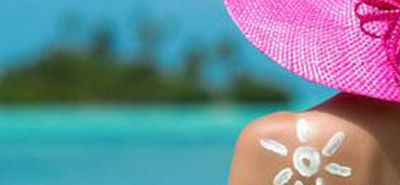New research from the Australian Secondary Students’ Alcohol and Drug (ASSAD) survey* shows more than a third of all Queensland secondary students attempted to get a tan last summer.
Queensland girls were estimated to be twice as likely put their skin at risk, with 49 per cent attempting to tan compared to 25 per cent of boys.
Cancer Council Queensland spokesperson Katie Clift said the new statistics were a cause for concern.
“Attempting to tan is dangerous and can cut young lives short,” Ms Clift said.
“The data shows students aged 16-17 years were more likely to attempt to tan (46 per cent) compared with 30 per cent of students aged 12-13 years.
“Alarmingly, the survey also revealed that a third of students said their skin would ‘just burn or go red’ when asked what would happen to their skin if they stayed in the sun for 30 minutes with no protection at all.
“Young Queenslanders need to urgently understand the very real dangers of skin cancer, and the risks associated with tanning.
“Whether accidental or intentional, unprotected exposure to UV radiation increases the risk of skin damage and cancer.
“Even spending as little as 10-15 minutes in the summer sun unprotected, when the UV Index is three or above, can significantly damage the skin.”
Around 136,000 cases of skin cancer are diagnosed every year in Queensland – 3000 melanoma and 133,000 non-melanoma skin cancers.
Melanoma is the most common cancer diagnosed in Queenslanders under the age of 35 – around 250 are diagnosed each year alone.
More than 3900 Queensland secondary students aged between 12 and 17 years participated in the Australian Secondary Students’ Alcohol and Drug (ASSAD) survey.
The survey, conducted every three years since 1984, is a collaboration between Cancer Councils, the Australian Government Department of Health and state and territory health departments.
More information about Cancer Council Queensland and the risks of tanning is available via 13 11 20 or cancerqld.org.au.
ENDS
For more information or interviews, please contact:
Executive Manager,
Media and Spokesperson,
Cancer Council Queensland
Phone: (07) 3634 5372
Mobile: 0409 001 171

